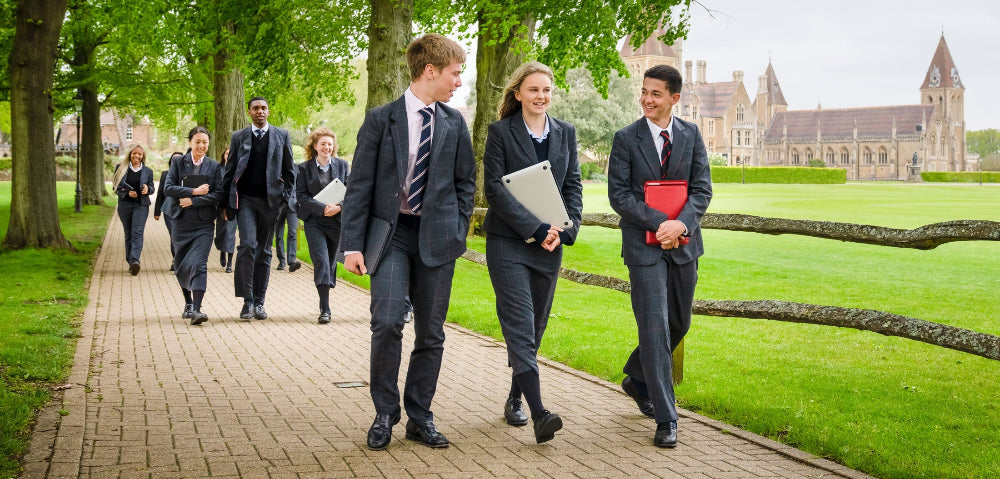
Managing Social Media Use at a UK Boarding School: A Parent Guide
Social media is now woven into teenage life, and many parents worry that constant scrolling could distract from study, sleep or healthy friendships. The good news is that a well run UK boarding school actively teaches healthy digital habits rather than relying on bans. Structured routines, pastoral oversight and education help pupils become thoughtful, resilient online users.
Why Social Media Boundaries Matter
Unmanaged social media use can affect attention, mood and sleep quality. Guidance on healthy routines from the NHS (see the general wellbeing advice on the NHS Live Well pages at https://www.nhs.uk/live-well/) and online safety recommendations from the UK Safer Internet Centre (https://saferinternet.org.uk/) both stress balance, reflection and critical awareness. Schools translate these principles into daily practice.
Typical School Structures That Promote Balance
Strong UK boarding schools combine:
-
Clear acceptable use and device policies explained in pupil friendly language
-
Supervised prep time that limits non academic phone use
-
Staged privileges (younger years hand in devices at night, older years self manage with monitoring)
-
Scheduled tech free activities (house socials, evening sport, creative clubs)
-
Tutor discussions on digital footprints and reputation
Teaching Digital Literacy and Critical Thinking
Education goes beyond “be careful online.” Effective programmes include:
-
Analysing persuasive design and algorithmic feeds
-
Identifying misinformation techniques
-
Discussing comparison culture and protecting self esteem
-
Understanding privacy settings and data sharing
-
Practising respectful online dialogue
Resources from the UK Safer Internet Centre and the NSPCC (https://www.nspcc.org.uk/keeping-children-safe/online-safety/) often inform lesson content. We help families assess how embedded these lessons are when they review a school.
Early Identification of Problematic Patterns
Pastoral staff, IT teams and houseparents share observations. Warning signs include:
-
Declining prep focus linked to late night device use
-
Social withdrawal paired with heavy messaging or gaming
-
Sleep disruption (tiredness at morning registration)
-
Escalating conflict or anxiety after online interactions
Where these arise, interventions are supportive: structured check ins, adjusted device routines, mentoring, or referral to counselling if needed.
Supporting Positive Use
Schools encourage purposeful digital creation:
-
Media and film clubs
-
Music production and digital composition
-
Coding or robotics societies
-
Digital art and design portfolios
This reframes technology as a tool for expression and skill building. We guide parents seeking schools that celebrate constructive online creativity.
Safeguarding and Reporting
Robust safeguarding frameworks reference Keeping Children Safe in Education on GOV.UK (https://www.gov.uk/government/publications/keeping-children-safe-in-education--2). Staff receive training in recognising cyberbullying, grooming indicators and harmful challenges. Reporting channels are made clear to pupils (tutor, houseparent, designated safeguarding lead, anonymous online form). Rapid, proportionate action plus restorative conversations help maintain trust.
Supporting Mental Health
Where social media fuels anxiety or low mood, schools may:
-
Coach pupils on curating feeds (muting triggering accounts)
-
Embed sleep hygiene routines (device wind down before lights out)
-
Provide access to counsellors or wellbeing practitioners
Mental health guidance for young people can also be reviewed on the NHS children and young people pages (https://www.nhs.uk/mental-health/children-and-young-adults/). Alignment between home and school messaging strengthens impact.
How Parents Can Partner Effectively
You can reinforce school strategies by:
-
Agreeing realistic holiday screen routines (consistent bedtimes, phone free meals)
-
Valuing digital creativity and learning outcomes, not just time limits
-
Avoiding emotional late night message chains that prolong screen use
-
Asking process questions (“What helped you stay focused tonight?”) rather than interrogating total screen minutes
For additional structured advice, the NSPCC and UK Safer Internet Centre provide parent toolkits you can reference.
Questions to Ask Schools
-
How are device policies adapted by age group
-
What training do tutors receive on digital wellbeing
-
How are cyberbullying incidents recorded, resolved and communicated
-
How are parents kept in the loop without undermining pupil trust
-
What evening routines protect sleep for younger years
Summary
A high quality UK boarding school does not eliminate social media. It teaches pupils to manage it: setting boundaries, encouraging creativity, detecting risks early and supporting balanced routines. The result is wiser, more self regulated online behaviour that benefits academic focus, sleep and emotional stability.
If you want help choosing schools with strong digital wellbeing frameworks, speak to our team. We will build you a shortlist matched to your child’s habits, personality and goals.
